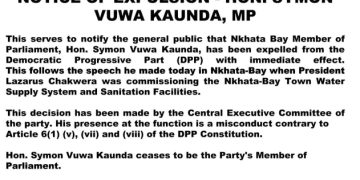Medical and adult use cannabis production could provide new sources of taxable revenue for countries seeking to recover financially in the aftermath of the pandemic.
Recent legal developments in South Africa point to a growing attempt to harness the plant’s potential and ensure adequate control of the cultivation and sale of cannabis products.
In April 2021, the South African Government proposed a draft national master plan with the aim of loosening regulations in the cannabis industry in order to boost economic development.
The plan looks at the prospect of creating an export market for cannabis producers and how current legislation can be amended to remove constraints on the commercial cannabis market. The plan also involves increasing investment in cannabis industry research.
Other suggestions included in the plan are support for farmers and indigenous dagga growers in the cannabis value chain, as well as support for manufacturing and product development. One of the priorities included in the plan is signing of the Cannabis for Private Purposes Bill into law by 2023.
Countries that want to make a success of their cannabis production industries are now looking at ways to lessen the barriers for small farmers to help steer the legal cannabis market in a more equitable and sustainable direction.
The current legislative frameworks for cannabis production tend to push out the smaller cannabis producers. Legislators are looking at ways to give small farmers preferential access to subsidies and financial assistance, special licenses and quotas for small producers.
In this regard, there is a need for consultation with small producers as well as experts in the healthcare and life sciences, and legal sectors, to ensure that the right legislative framework is in place to support all elements of the market. This will also help to ensure that the rapid development of cannabis market is in line with the United Nations’ sustainable development goals, especially the goal pertaining to the notion that no one gets left behind.
UN says cannabis is no more a dangerous drug
In South Africa, requirements regarding permits and licenses to produce and sell cannabis are currently onerous and legal advice is a necessity in order to participate in this sector.
South Africa permits the cultivation of medical cannabis. A license for cannabis production can be obtained, but the processes for its provision are stringent. The Medicines and Related Substances Act of 1965 (Medicines Act) historically mandated the-then Medicines Control Council, now referred to as the South African Health Products Regulatory Authority (SAHPRA), to regulate the availability of quality medicines, which are safe and efficacious for their intended use. Amongst other things, this mandate requires SAHPRA to apply standards for the manufacturing, distribution, selling and marketing of medicines, medical devices and scheduled substances, including cannabis.
In terms of the Medicines Act, medical practitioners are permitted to apply to SAHPRA for permission to access and prescribe unregistered medicines when intended to treat their patients, which may include cannabis.
Accordingly, SAHPRA acknowledges and permits that cannabis products, intended for medicinal purposes, may thus be made available in exceptional circumstances, to specific patients under medical supervision.
Potential cannabis growers and producers should note that, under the Medicines Act and in line with the United Nations Single Convention, the cultivation, production, manufacturing and use of medicinal cannabis products may only occur through a license issued by SAHPRA and a permit issued by the Department of Health.
Rwanda legalizes growing of cannabis for medical purposes











































